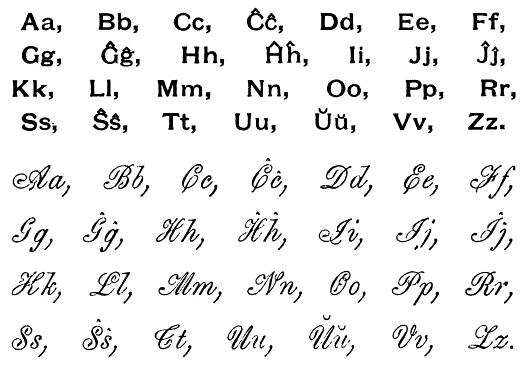A fun bit of linguistic history from Henry Hitchings’ Salon article, “What’s the Language of the Future?“:
“There have been attempts to create an artificial language for use by all the world. In the second half of the nineteenth century and then especially in the early years of the twentieth, schemes to construct new languages were numerous. Most of these are now forgotten: who remembers Cosmoglossa, Spokil, Mundolingue, Veltparl, Interlingua, Romanizat, Adjuvilo or Molog? Some of the innovators sound like remarkably odd people. Joseph Schipfer, developer of Communicationssprache, was also known for promoting means of preventing people from being buried alive. Etienne-Paulin Gagne, who devised Monopanglosse, proposed that in time of famine Algerians help their families and friends by exchanging their lives or at least some of their limbs for food, and was willing if necessary to give up his own body to the needy.
Only two schemes enjoyed success. In 1879 a Bavarian pastor, Johann Martin Schleyer, devised Volapük. It was briefly very popular: within ten years of its invention, there were 283 societies to promote it, and guides to Volapük were available in twenty-five other languages. As Arika Okrent observes in her book In the Land of Invented Languages, Volapük is a gift to people with a puerile sense of humour: ‘to speak’ is pükön, and ‘to succeed’ is plöpön. More famous and less daft-sounding were the efforts of Ludwik Zamenhof, a Polish ophthalmologist of Lithuanian Jewish descent, who in the 1870s began work on creating Esperanto, a language without irregularities. He published his first book on the subject in 1887, summing up the language’s grammar in sixteen rules and providing a basic vocabulary. Zamenhof’s motives were clear; he had grown up in the ghettos of Bialystok and Warsaw, and, struck by the divisiveness of national languages, he dreamt of uniting humanity. Esperanto is certainly the most successful of modern invented languages, but although it still has enthusiastic supporters there is no prospect of its catching on as Zamenhof once hoped.”
••••••••••
Learning Ubbi Dubbi, 1972:
Tags: Henry Hitchings

